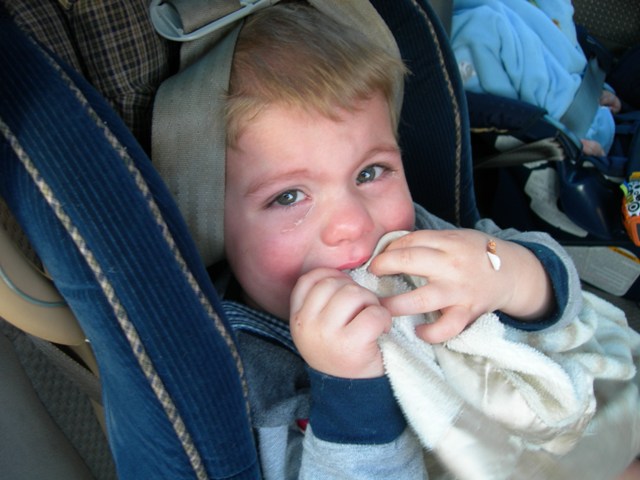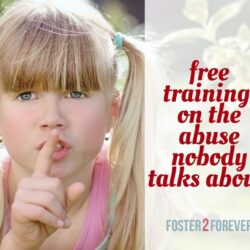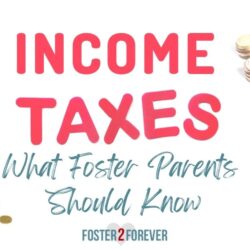Before being licensed as foster parents, my husband and I were required to complete a training course called Group Preparation and Selection, or GPS. Every Monday night, for 10 weeks, we joined with other prospective foster/adopt parents to learn how the system works, what to expect as foster parents, and how to deal with children who have experienced loss and trauma. The classes were very beneficial and we learned a lot but in foster parenting, like in any other type of parenting, you have to be adaptable.
For instance, in GPS classes we learned that to ease the transition of a move it’s best to have several visits with a child before they move into your home. However, our reality is that 2 of our 3 children that we foster adopted moved in with us on the day they met us. Obviously this is not ideal, but the children were emergency removals. Fortunately, bonding took place very quickly and both children have adjusted very well to our home.
Another thing you learn in your training is that ideally you should build a relationship with your child’s previous foster family, as this builds trust between you and the child and eases their transition into your home. We tried this with both of our daughters’ previous foster families, but were unable to do so with our son’s because of the abuse he suffered from his foster mother. With one daughter, the foster parents didn’t care to maintain contact. We made several efforts to keep them in our daughter’s life yet they made it clear that they just weren’t interested. After only a couple of visits they were done with her whether we liked it or not. With our other daughter we tried to establish a relationship with her foster family, but the former foster mom was so bitter about not being allowed to adopt the child herself (She made some poor decisions that caused her home to be closed as a foster home.) that her self-destructive behavior made subsequent visits out of the question.
However the most surprising difference between what we were taught in GPS training and reality actually is ideal. In the classes you learn about how abuse, neglect, and loss affect children in foster care. You are taught about the stages of grief, creative discipline strategies, and attachment disorders. We were sure that the children placed with us would come with some major emotional baggage. Our first daughter had absolutely no behavioral or emotional issues whatsoever. She was the perfect 3 year old. So perfect in fact that our social workers were quick to warn us not to expect any other foster children to be that way. Our second daughter, easily our most difficult child, has ADHD and was buckwild when we got her. After only a small amount of time in our home we could see a huge improvement and she gets better every day. We are her 8th home, yet she is no more damaged than most other children her age. She is amazingly resilient. Our youngest son has only been with us since last June and already it’s like he’s been with us forever. He’s never had any unusual behavioral problems. He has ADHD and requires a little extra help with his school work, just like many kids who have never been in foster care.
For those of you considering foster care, learn all you can in your classes. Most of it is very valuable information that you will need and use. Just don’t forget that no situation is ideal and that’s ok. All of my children have been ideal, even if their situations didn’t start out that way.
Becky Johnson is a happy wife and proud mommy of four, both by birth and foster care adoption. Because two of her adoptions have been transracial, her family often gets mistaken for a daycare or church group when out in public. Life in the Johnson home is fun, chaotic, and definitely blessed. Read more about Becky’s family at http://averyblessedmommy.
blogspot.com





